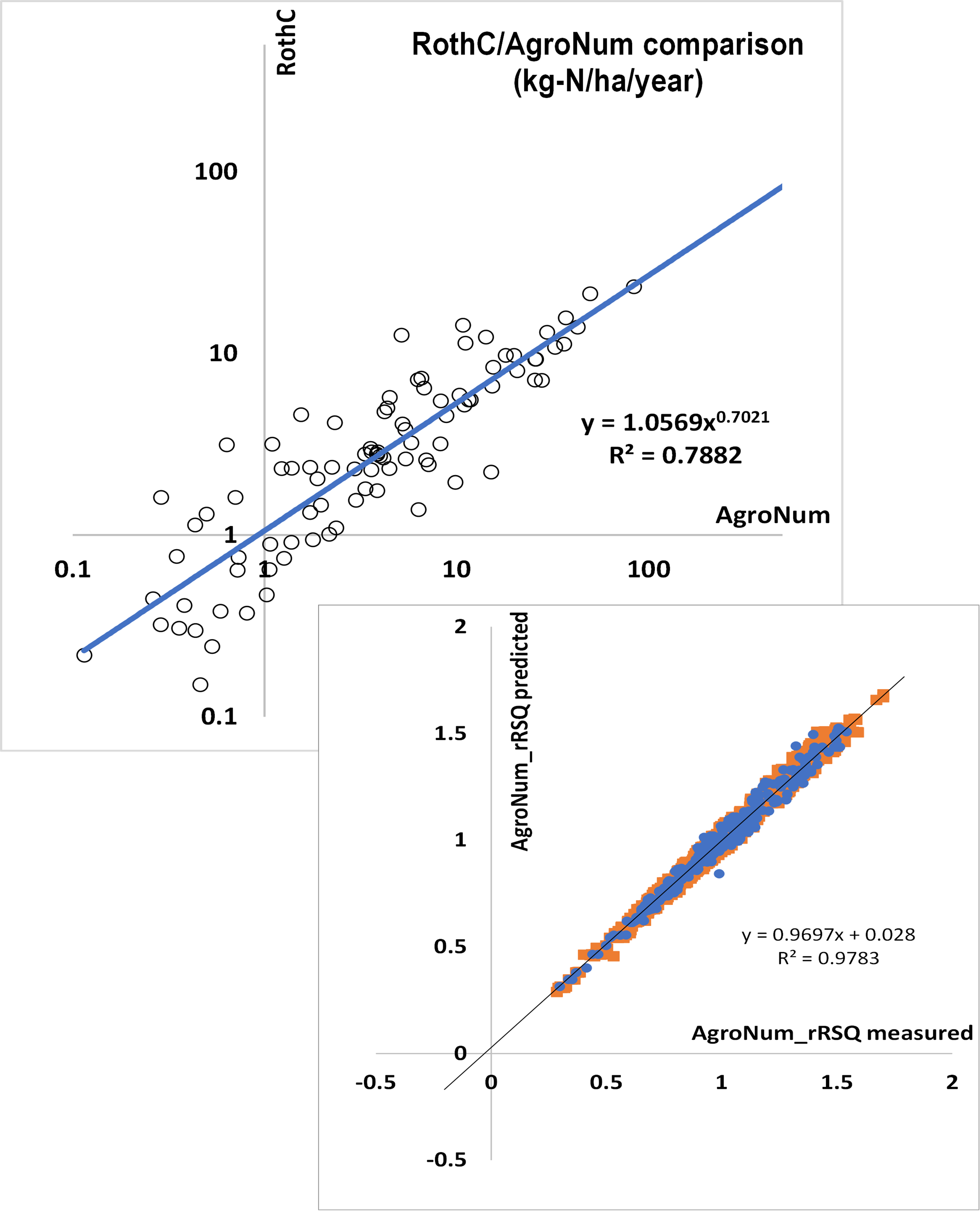COST & PRECISON. Carbon farming can be costly, way too costly in comparison to the market value of the carbon-credits. A recent article in France Agricole (https://lnkd.in/emqCwiaw) states that C-credits should be around 200€ to cover costs of innovative cropping practices and carbon-farming implementation. One way to get around such costs is to do away with error prone soil sampling. More so, given the inherent heterogeneity of all soils at the plot- or field-level.
Polyor SAS’s AgroNum™ approach to sustainable agriculture and soil organic carbon (SOC) conservation (https://lnkd.in/exiTpR5a) is advantageously “sample-less”. Precise sustainable benchmarks, rRSQ, for any plot are generated using Polyor’s proprietary AgroNum™ AI algorithm. These rRSQ references can then be used to calculate (refundable) nitrogen-credits (kg-N/ha/year) dedicated to the humification of crop residues into stable SOC.
We cross-checked these AgroNum™ derived N-credits, convertible into in C-credits if need be, against soil organic matter increments accumulated over time using the RothC model (https://lnkd.in/eJNuf43W). Nb. These SOC increments are converted to nitrogen using the soil’s C-N ratio. Though a little rough, the RothC::AgroNum™ correlation illustrated the commensurability of both measures. AgroNum™ being a priori more precise and cost effective is obviously more easily applicable to agricultural consultancy & carbon-farming.
#carbonfarming #sustainableagriculture #agriculturedurable #AI



